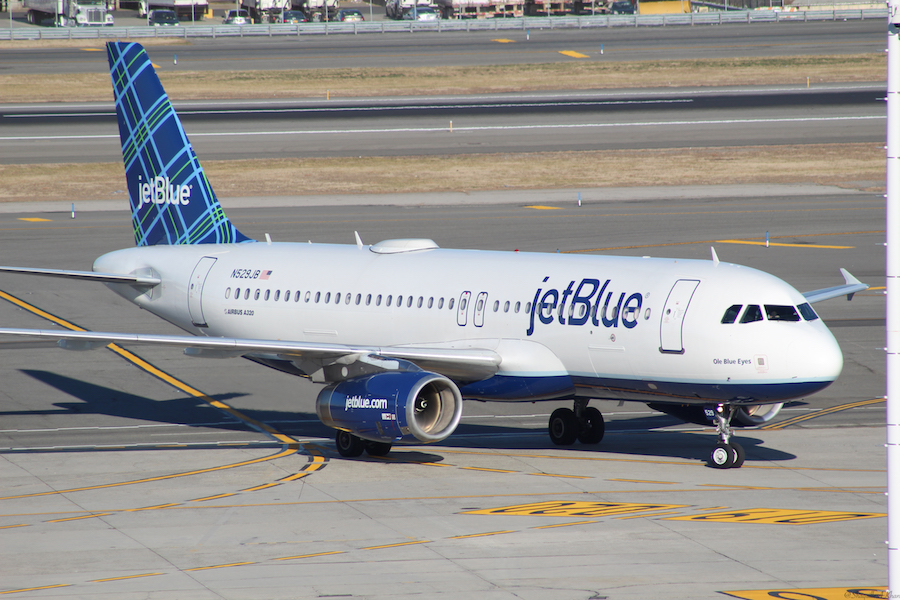ಪೀಟರ್:
Yeah, that’s it. I appreciate that, but that said, there’s a lot of talk in the industry, of course, massive pent-up demand. Now, if that pent-up demand is so massive, why do you have to discount to attract it in there?
ಜುಜ್ಸೆಫ್:
Well, I think you have to stay an element to the market. And if you’re an airline, you need to come back to the market. And I think the more interesting question is actually, what’s going to happen to the industry from the perspective of restructuring, how COVID-19 we are restructuring industry. So who will be the structure of winners and who will be able to structure losers? Who would be the absolute losers, who will not survive this span of weeks? And I don’t think we are seeing it yet. Simply, I think COVID-19 has created a shield on the industry. So governments are not prepared to pull the plug because it’s politically sensitive. They are asking highly motivated by maintaining employment in the economies, and at the same time, and you look at life from a lesser perspective.
They don’t have really any alternatives to base out of somewhere else. So even if they don’t get paid by the lessee, there are better options, keeping the lessee responsible for storing the aircraft or paying insurance for the aircraft. So I think this is a protective shield on the underperforming segment of the industry, but once the market starts lifting you will, I think, see the distress flowing through the system. And I think that’s going to be less quiet. A number of businesses, and you will see quite a number of airlines fairer at that time. But I also think that many of the carriers will be survive based on state bailouts, will have a hard time to pursue that objective. So especially when it comes to those, simply, the servicing, the debt, they are undertaking, it’s going to be a hell of a financial burden and asking management we’d have to be more responsible for financial performance and how they are using taxpayers’ money. So I also think that many of those airlines will repair their capacity and long-term growth as a result of the bailouts during the COVID-19 times.
ಪೀಟರ್:
Yeah. That is going to be a problem for you. Obviously, you’re one of the lowest cost, if not the lowest cost X fuel operator in the market, but if you’re fighting against someone on an uneven playing field where they’re being supported by government and governments even got equity in the airline, they’re not going to let that fail are they? So you really are up against it.
ಜುಜ್ಸೆಫ್:
Yeah. I think it’s certainly fair to say that the airline industry is becoming a game, the new toy or the world toy for politics and governments. I think the industry was celebrating a few decades ago, the day [inaudible 00:06:35] the states, the governments, but now they are back into the game, even hoarding equities in airlines. And we will see what that truly means for the future because I think that this is not going to stop with finance rates. It’s going to be bringing more administrative burden and more taxes possibly and all those schemes will be created a such that it be probably further destroy level playing field of the market. So I think this is problematic, and this is worrying that now governments are back into the industry again, but at the same time, I also think that especially short [inaudible 00:07:18] flying is a commodity and in commodities, lowest cost prevails, lowest cost wins.
And we are the lowest-cost producers. And this is the best strategic angle you can take on the industry. So even if the market is not fully functioning and it’s not perfect, I still seeing that you have a way to go, and that way is stronger than any of the others. And the idea and our business is not a market share game or in business is a market stimulation game. So we are bringing new passengers, new travelers into the franchise of flying, and we try to hold them there for more frequencies and more frequent travel. So this is our business, and I don’t think that we definitely got, our businesses going to be detrimented by government taxes although it may curtail some of the upsides of the industry.
ಪೀಟರ್:
Are you surprised that the European Commission hasn’t taken a more aggressive role? Looking at Italy, for example, where son of Alitalia held one of its many sons over the decades, it looks like reappearing, presumably where EU’s support. Were you, and Ryanair has been very vociferous about this, are you looking at trying to challenge through the European Union? Get them to be more active?
ಜುಜ್ಸೆಫ್:
I think you can say a lot of things for the European Union, but I would say that during the COVID times, it’s been largely dysfunctional many ways, not only in terms governing industries like the airline sector but also, stepping up with unified measured when it comes to fighting COVID and all those measures. Europe is one of those incredibly complicated set of countries. We are flying to 49 countries and there are no two countries that would apply the same measures on COVID. So if we can’t deal with that, how do you expect the union to relief matters, like stated.
But I don’t think this problem is down to our Italia only, you can list, 2000 airlines in, in Europe that you can question the action of the government. And by it was the invite was done the way they did it was so uneven and on equal relative to the rest of the market. And I don’t know whether this is going to get sorted from a legal point of view but certainly if you look at it from a governance perspective it’s been very disappointed.
ಪೀಟರ್:
Yeah. Yeah. Going back to your point about a lot of airlines struggling, are there any airlines in particular you would see likely be in trouble in the next 12 months?
ಜುಜ್ಸೆಫ್:
Other than probably one or two airlines in Europe, I think everyone is in trouble. And that’s not really the question. The question is, who’s going to survive on the basis of state bailout because I doubt most of these airlines will be bailed out by the market. They are just so unexpected to do that, but governments seem to be stepping up and they seem to be protecting their, big carriers and they are discriminating those carriers versus the rest of the market. So I think it is more down to the governments, who they like, what they want to do, how they are politically motivated when they put resources, financial resources into the industry. But seriously, other than one or two airlines, essentially the entire industry, every single airline is in trouble.
ಪೀಟರ್:
Yeah, it’s not a nice thought, is it? And yet there really doesn’t seem to be much going on in terms of restructuring. It seems to be pretty much, well, let’s just keep going. Let’s borrow some more money and keep hoping that things will get better.
ಈ ಲೇಖನದಿಂದ ಏನು ತೆಗೆದುಕೊಳ್ಳಬೇಕು:
- So especially when it comes to those, simply, the servicing, the debt, they are undertaking, it’s going to be a hell of a financial burden and asking management we’d have to be more responsible for financial performance and how they are using taxpayers’.
- Obviously, you’re one of the lowest cost, if not the lowest cost X fuel operator in the market, but if you’re fighting against someone on an uneven playing field where they’re being supported by government and governments even got equity in the airline, they’re not going to let that fail are they.
- So I think this is a protective shield on the underperforming segment of the industry, but once the market starts lifting you will, I think, see the distress flowing through the system.












![ಚೀನಾದ ಹೈಪರ್ಲೂಪ್ ರೈಲು: ಸಾರಿಗೆಯ ಭವಿಷ್ಯಕ್ಕೆ ಒಂದು ಗ್ಲಿಂಪ್ಸ್ 10 ಪ್ರವಾಸ ಪ್ರವಾಸೋದ್ಯಮ ಸುದ್ದಿ | ದೇಶೀಯ ಮತ್ತು ಅಂತರರಾಷ್ಟ್ರೀಯ ಹೈಪರ್ಲೂಪ್ ರೈಲು ಚೀನಾ [ಫೋಟೋ: ಹೈಪರ್ಲೂಪ್ ಟ್ರಾನ್ಸ್ಪೋರ್ಟೇಶನ್ ಟೆಕ್ನಾಲಜೀಸ್]](https://eturbonews.com/cdn-cgi/image/width=145,height=100,fit=crop,quality=80,format=auto,onerror=redirect,metadata=none/wp-content/uploads/2024/02/180720163348-hyperlooptt-china-capsule.jpg)









